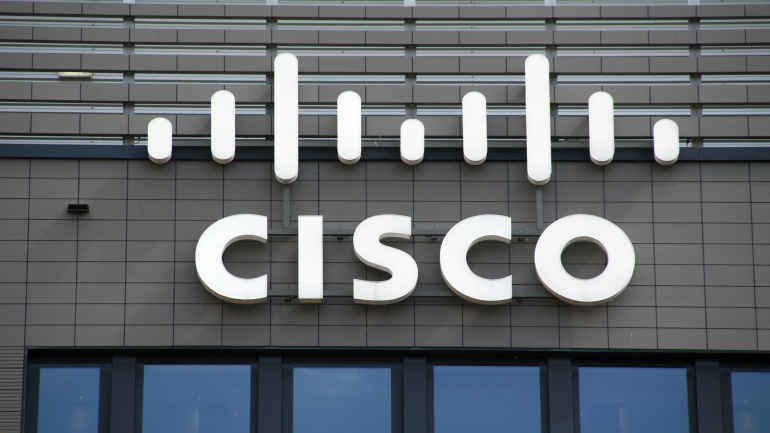Ericsson’s new 5G Advanced software suite targets next-level network programmability and enhances VoIP capabilities. With seven products, Ericsson boosts performance and user experience, aligning networks with business goals using AI-driven technologies.
Cisco’s decision to exit the LoRaWAN market by 2025 marks a significant shift in the IoT landscape. While phasing out LoRaWAN products, Cisco encourages exploration of alternative suppliers through the LoRa Alliance. This ecosystem’s robust growth and diverse vendor availability ensure ongoing development and adaptation, meeting evolving global business needs.
Cybersecurity landscape has been rapidly changing, as hackers abandon phishing for exploiting software vulnerabilities, a trend illuminated in a study by Akamai. The study revealed a dramatic 143% increase in victims during Q1, predominantly due to surging incidents of zero-day and one-day vulnerabilities. Surprisingly, smaller organizations, particularly those within manufacturing, business services, retail, construction, and education sectors are often targeted.
Samsung and Wind River collaborate on automotive-focused Exynos Auto V920 chips, promising seamless over-the-air updates and multi-OS compatibility for connected, autonomous, and electric vehicles. A potential game-changer in software-defined car industry, raising both excitement and debate.
Linxa, a provider of cutting-edge voice and data traffic solutions for telecom carriers and operators, has announced the implementation of Linxa Connect, which will enable Arelion (previously Telia Carrier) to revolutionize its wholesale voice business. Linxa Connect is a fully integrated end-to-end telecom management software product that supports and automates wholesale activities, from rate control through routing, quality and deal management, invoicing, dispute management, fraud detection and reporting. The Linxa Connect platform enables an increasing number of Tier-1 carriers’ profitable voice businesses and supports solutions that provide these enterprises with what they need to stay competitive, such as simplicity, automation, control and agility. By leveraging Linxa Connect, Arelion has been able to replace three outdated systems with a single platform, as well as improve automation and business processes. End-to-end functionalities are streamlined and more accurate, and procedures include grading, routing, quality and deal management, invoicing, reconciliation, dispute management,…
In the fast-paced and demanding world of telecommunications, where new technologies and challenges are always around the next corner, Adam Zeibig, Carrier Manager at VCC Live, is always seeking for a win-win scenario. Read the VoIP.Review exclusive interview with Adam, in which he discusses his experience, motivations, and challenges working in the telecommunications sector, as well as his outlook on the future of AI and IoT in telecoms. Tell us about VCC Live and about your role in the company. VCC Live is a cloud-based contact center software providing company that is headquartered here in Budapest. But we also have legal entities in Germany and the United States. At the time I started here in the company, which was one and a half year ago, a little bit more than one and a half year ago, we had roughly 65 employees working for us, but during that time we…
Vodia Networks, manufacturer of cutting-edge software-based telephone systems, has announced its 2021 Webinar schedule. A number of industry-leading companies will participate in the webinars, including CyberData, Fanvil, Quest Blue and Yealink. Each webinar will demonstrate the features and ease of use of the new version of Vodia’s industry-leading multi-tenant cloud PBX, version 67, which was released in February 2021. The webinars are designed for both resellers and end-users. “We’re excited about 67, particularly how perfectly it integrates with Microsoft Teams,” said Vodia CEO Christian Stredicke. “Our best-in-class cloud PBX is the telephony system SMBs need to thrive during these challenging times and going forward. We invite all of our partners and resellers to participate in these webinars, and to invite their customers as well. For SMBs interested in our cloud PBX, we are happy to connect you with an outstanding reseller in your area. Please join us for what…
Nokia announced on Monday that Deutsche Telekom (DT) has chosen the Finnish multinational telecommunication provider to convert DT’s optical network into a service-oriented platform. The transformation will allow Deutsche Telekom to provide its customers with an improved service quality experience, by upgrading the existing network to an expansive and automated one. The use of automation will help the operator to simplify and organize operational tasks to make more efficient use of network resources. Deutsche Telekom will adapt Nokia’s optical transport portfolio to become a higher-capacity, self-regulating network that meets residential and Industry 4.0 requirements. This gives Nokia the opportunity to promote its ‘Wave’ Brand optical transport portfolio: the Nokia WaveFabric service-ready platforms and the Nokia WaveSuite software portfolio, that includes the Nokia 1830 Photonic Service Switch (PSS) provided by the PSE- V family of coherent DSPs (digital signal processors). This solution will revolutionize Deutsche Telekom’s optical backbone network…
The American multinational technology conglomerate, Cisco, has announced its intention to acquire IMImobile, a provider of cloud communications software and services that manages business-critical interoperability on a large scale. The deal is valued at nearly $730 million, assuming full dilution of the shares, net of cash and debt. The acquisition will be Cisco’s largest in the UK in about three years. The company will pay IMImobile shareholders £5.95 per share and the acquisition of the software vendor is expected to be completed in the first quarter of 2021, following regulatory approval. The American company said the procurement will provide its consumers with an end-to-end customer interaction management solution and the ability to promote quicker and much improved communications and interactions through a selected customer channel. Cisco’s Webex Contact Center solution, along with IMImobile software and services, will offer a solution that leverages artificial intelligence throughout the customer’s…
The abbreviation API stands for Application Programming Interface, a phrase which is not particularly self-explanatory to those who have not yet had the chance to delve into the world of APIs. voip.review will provide a concise and easy to understand explanation of APIs for you. Basically, an API is a software-to-software interface that allows different computer systems and applications to communicate and share information, according to a set of rules embedded in the API. To put it another way, the API is a Programming Interface for developing Applications. The provider of the API publishes a set of rules defining how third party software programs should interact with their piece of software, listing a bunch of operations that developers can use, along with a description of what each operation will achieve. APIs deliver tremendous advantages to the technology industry, mainly because they allow for the rapid development of software products using…













